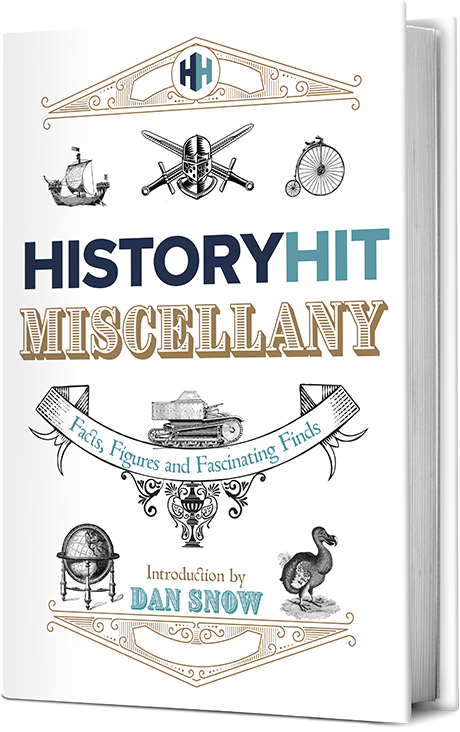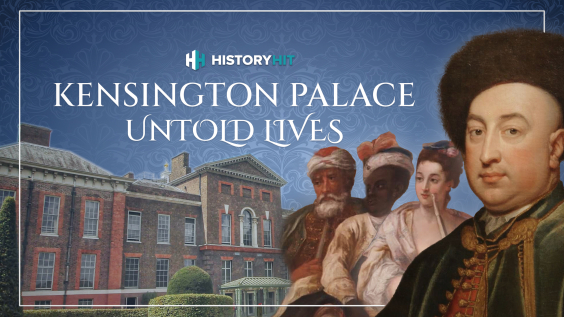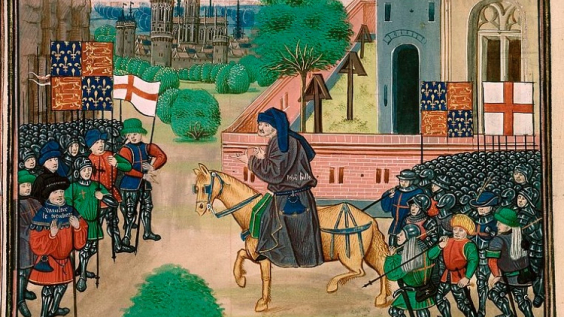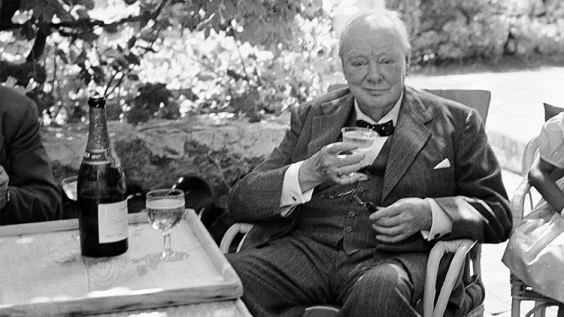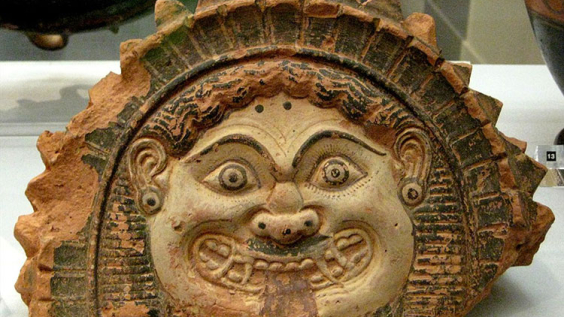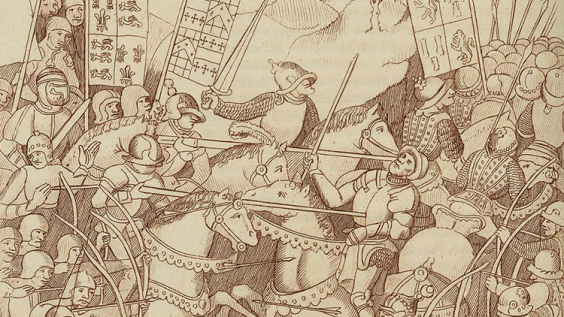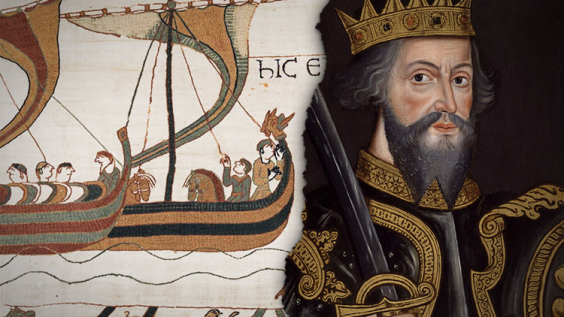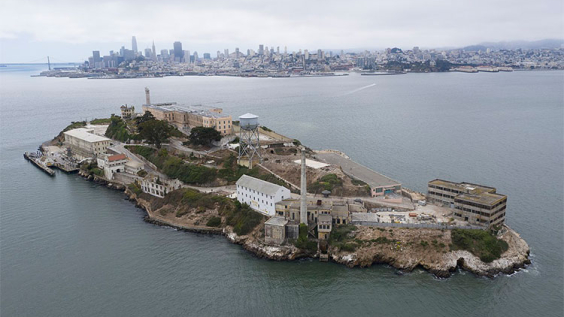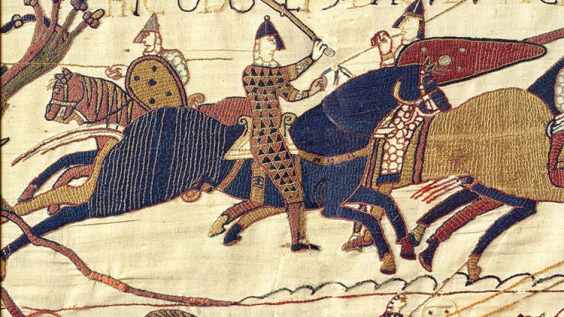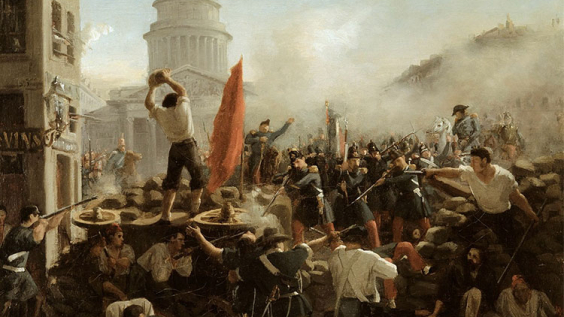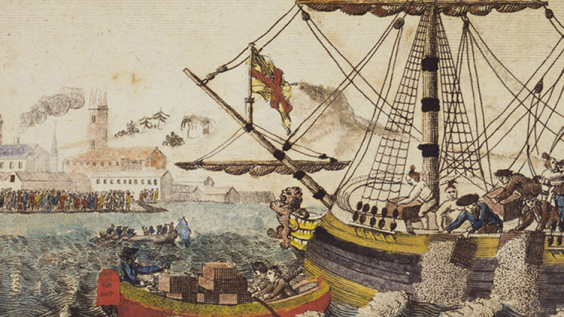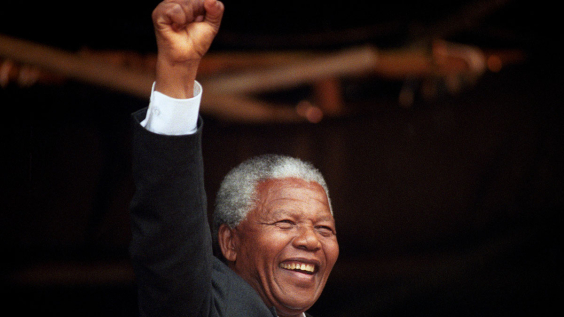
Reason, democracy, human rights: the Enlightenment has given us a lot.
However, the Enlightenment’s most prominent ideas also paved the way to some of humanity’s darkest moments.
From the horrors of Nazism and Communism to the alienation of modernity, the Enlightenment’s liberating ideals ended up supporting oppressive ideologies and societies.
So, how did it happen?
The worship of reason
“Dare to know” – first propounded by Immanuel Kant – was the Enlightenment’s unofficial motto.
It promised that human knowledge could be greatly expanded, if only we break the chains of ignorance and put our trust in reason and curiosity.
Reason, not superstition or tradition, should be society’s guiding principle.
In a religious society, this was a radical reorientation. Doctrine and scripture were challenged; religious hierarchies and privileges were questioned.
And, as the rational systems of science began to bear fruit, Christianity fell into retreat.
But establishing a new society based on reason seemed uncertain, and no one really knew what it would look like.

Reading of Voltaire’s L’Orphelin de la Chine in the salon of Madame Geoffrin, 1812 (Credit: Anicet Charles Gabriel Lemonnier).
Infamously, the French Revolution tried to rebuild society on rational principles.
Traditions were swept away in favour of logical systems which promised to imbue the social hierarchy with the clear-thinking of science.
The calendar is a good example of how the revolutionaries sought to reshape society.
Each month was divided into 10-day periods called décades, and renamed to reflect the typical cycles of agriculture during that time of year.
Each day had 10 hours, and each hour had 100 “decimal” minutes and each minute 100 “decimal” seconds. And the year was reset to zero.
The revolutionaries went further. The property of both the church and the aristocracy was confiscated. The monarchy was abolished and royalty were executed.

The revolutionaries of the French Revolution tried to rebuild society on traditional principles (Credit: Jean-Pierre Houël / Bibliothèque nationale de France).
A Grande Armée was established, the first conscripted army in history. The Reign of Terror (1793-94) saw the enemies of the revolution led to the guillotine.
In a few short years, the revolutionaries had offered a glimpse into what could happen when long-established principles and traditions were swept away by “the will of the people”.
From Joseph Stalin’s purges of the 1930s to Adolf Hitler’s theory of Volksgemeinschaft (‘people’s community’), the dictators of the 20th century used arguments and techniques developed during the Enlightenment, in defence of Enlightenment ideals.
A new God?

Reasoning, which revealed the secrets of nature, was celebrated by the Enlightenment’s leading lights (Credit: Fyodor Bronnikov).
In contemporary secularised societies, it can be difficult to imagine just how deeply ingrained the concept of a creator God was in pre-modern European society.
While there were plenty of ‘freethinkers’, very few of them were explicitly atheist.
But the philosophies of the Enlightenment inspired a long-term shift away from religion.
As well as criticising religious dogma and superstition, the Enlightenment’s proponents developed theories of society which didn’t derive their moral authority from God or the church.
Secular power needn’t rely on religious power.
 Listen Now
Listen NowNot only was the church divorced from the state, but the very idea of a creator ‘God’ came to be seen as increasingly unlikely.
By the mid-1800s, many of the latest theories were doing without God at all.
The end of the century was accompanied by Friedrich Nietzsche’s declaration, “God is dead.”
But Nietzsche wasn’t celebrating. He was issuing a warning – without God, how could you firmly establish a system of ethics?
And didn’t history show that humans needed some kind of sacred authority figure to worship?
Nietzsche believed that the following century – the 20th – would witness the rise of state-sponsored religions and messianic rulers for the masses.
Society reimagined

William Bell Scott’s ‘Iron and Coal’ shows the new working conditions created by the industrial revolution (Credit: National Trust, Northumberland).
Without traditions or religion to guide them, what could ordinary people rely upon?
Karl Marx’s theories became the fuel for one of the largest mass movements in history.
Marx reduced society to a set of competing power relations; all spiritual and cultural elements were simple tools used in pursuit of that power. So for Marx,
Religion is the opiate of the masses
and culture is merely an extension of capitalist exploitation, reflecting the values of the dominant classes.
In this sense, Marx was a product of the Enlightenment.
Using logic and reason, he expelled sentiment and superstition about society to reveal what he believed were the fundamental, mechanistic forces of society, which operated with total predictability.

Using logic and reason, Marx reduced society to a set of competing power relations (Credit: John Jabez Edwin Mayall).
And with no God to punish sinners, the only power left on Earth was might – and, in time, it would be firmly in the hands of the masses. Utopia was in reach.
Such conceptualisations of society had one important thing in common with religion: they claimed to be absolute truth, guiding the way to utopia.
In time, communism became as dogmatic and fundamentalist as any religion, its heroes worshipped and its enemies despised with a sectarian zeal.
Competing theories, all claiming to be the absolute and only truth, contributed to the ‘total war’ which scarred 20th century Europe.
Analysing the totalitarian trends of the 20th century, political theorist Isaiah Berlin said:
Those who believe in the possibility of a perfect world are bound to think that no sacrifice is too great for it.
In other words, any horror could be justified in the name of building the perfect future. Gulags, torture, and extermination could all be defended in this way.
Enlighten us
So while the horrors of the 20th century had many causes, it is possible to trace their roots to the Enlightenment.
 Watch Now
Watch NowThe Age of Reason marked the first time Europeans systematically challenged the dominant ideas and principles of the ruling aristocracy and clergy. Reason, empiricism and doubt were the tools, and egalitarianism, humanism, and justice were the desired outcomes.
But by overturning centuries of established order, the Enlightenment cracked open the closed circles of power and morality.
These cracks grew and ultimately became vacuums, into which new and ultimately dangerous ideas and autocrats arrived.
Nonetheless, what the thinkers of the Enlightenment achieved is remarkable. Yet it also demonstrates the difficulty of rationally designing new systems from scratch.
As Edmund Burke, a British MP and staunch critic of the French Revolution, said:
Whoever undertakes to set himself up as a judge of Truth and Knowledge is shipwrecked by the laughter of the gods.

